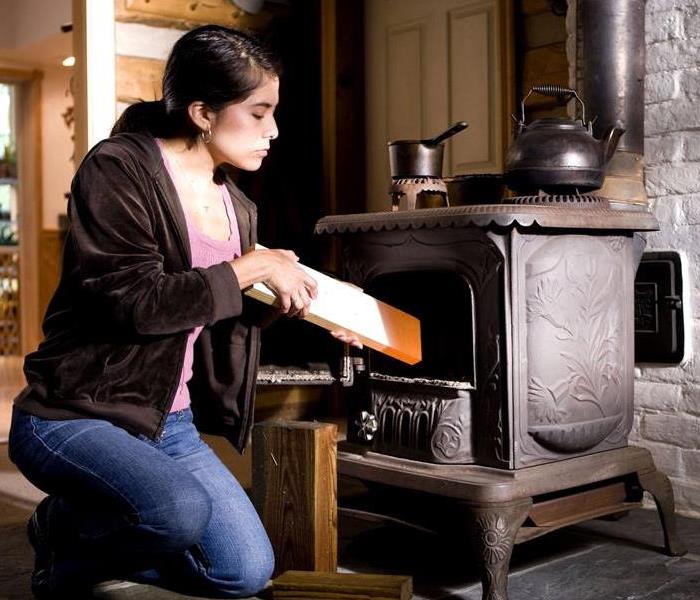How Do I Safeguard My Bellevue Home From Winter Fire Hazards?
12/6/2023 (Permalink)
During the cold of winter, homeowners use many methods to keep warm - from fireplaces and potbelly stoves to HVAC systems and space heaters. They vary in efficiency, of course, and some are more cost-effective than others, but you'll find them in homes across the Bellevue area.
No matter which heating system you choose, it must be used correctly to avoid becoming a fire hazard!
Keep reading to learn more about safeguarding your Bellevue home from winter fire hazards.
How Do I Ensure That I Am Safely Heating My Bellevue Home?
Here is some crucial information concerning safely operating heating systems in your Bellevue home:
- Carbon monoxide (CO) is a colorless, odorless gas created by fuels such as gasoline, wood, coal, or propane that don't burn completely. Cooking and heating equipment that burn fuel are potential sources of carbon monoxide poisoning in the home, and carbon monoxide incidents in residential properties are more common during winter.
- Electrical fires are a leading cause of house fires in the U.S.; almost half of all home electrical fires involve electrical distribution or lighting equipment. In contrast, nearly half involve other known types of equipment like washer or dryer fans or portable/stationary space heaters.
- Keep flammable items, such as your woodstove, furnace, fireplace, or portable heater, at least three feet away from heating equipment.
- Have your chimneys and heating equipment regularly cleaned and inspected annually by a qualified professional.
- Always turn portable heaters off when leaving the room or going to bed.
- While a wood stove is operating, all persons, especially young children, should be alerted to the hazards of high surface temperatures and kept at least three feet away to avoid burns or clothing ignition. Small children should be carefully supervised in the same room with the stove. 14. Keep the stove area clear and free of all combustible materials, such as gasoline and other flammable vapors and liquids.
What Do I Do If A Fire Occurs At My Bellevue Property?
Of course, you know to call emergency services in case of fire. After the fire is extinguished, the clean-up from the fire damage begins.
After any fire damage situation, your primary focus should be safety first:
- Is it safe to stay in the house?
- Electrical and "slip and fall" hazards are some of the most prevalent concerns.
- Only do activities that are safe for you to perform.
- Wet materials can be VERY heavy. Be careful!
SERVPRO of Huron & East Seneca Counties will be onsite immediately to help you recover from a fire. Check out our fire brochure and fire damage tips for more information.
We also handle water damage, mold remediation, odor removal, and more!
This franchise is independently owned and operated.






 24/7 Emergency Service
24/7 Emergency Service
